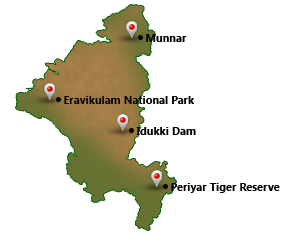'Idukki' is supposed to be derived from the Malayalam word 'Idukku' which means a narrow gorge. The district of came into being on 26 January 1972.It holds the distinction of being the second largest district in Kerala after Palakkad. It is blessed by nature with its beautiful hills, lush green forests, valleys,enchanting waterfalls and dams. There are numerous places of interest to visit. The majority share of the state's power is generated in Idukki. Being the largest, Idukki is one of the most nature enriched district of the state. A landlocked region, here, high ranges and wooded valleys that are encircled by three major rivers - Periyar, Thalayar and Thodupuzhayar - and their tributaries. Powering Kerala with one-third of the State’s electricity, Idukki is also famous for its gigantic arch dam. It is predominantly populated by indigenous tribe with around 50 percent of its total area is covered by forests. Rugged mountains and forests cover about 97 percent of the total area of the District. The district borders the Kerala districts of Pathanamthitta to the south, Kottayam to the southwest, Ernakulam to the northwest and Thrissur to the north and Coimbature, Dindigul and Theni Districts in Tamil Nadu to the east Anamudi, the highest peak in India south of the Himalayas. As a tourist destination, the place offers diverse attractions like wildlife sanctuaries, hill stations, spice plantation tours, mountain treks, elephant rides etc. Idukki’s numerous trekking trails and spectacular landscape dotted with rich flora and fauna make it a dream destination for nature enthusiasts. The main attractions of Idukki are Munnar, Marayur, Thattekad Bird Sanctuary, Eravikulam Wild Life Sanctuary and protected areas like Periyar national park and so on.
TOURIST SPOTS IN IDUKKI
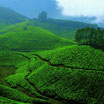
Munnar :-Munnar town is situated at the convergence of three mountain streams namely Muthirappuzha, Nallathanni and Kundala. In fact, the name Munnar literally means 'Three rivers'.
Read More
Munnar
Munnar town is situated at the convergence of three mountain streams namely Muthirappuzha,
Nallathanni and Kundala. In fact, the name Munnar literally means 'Three rivers'.
It is located at a height of more than 5000 metres above sea level and is famous
for its tea plantations. This hill station is marked by large areas of tea plantations,
colonial bungalows, rivulets, waterfalls, resorts and cool weather. Also an ideal
destination for adventure sports like trekking and mountain biking. The blooming
of the neelakurinji(Strobilanthus kunthianum) on the hills in Munnar is quite a
sight to cherish. The hill station of Munnar in early times used to be the summer
resort of the erstwhile British administration in south India. The tea museum by
the Tata tea tells the tale of the legacy of the tea plantations of this area.
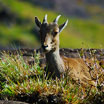
Eravikulam National Park :-Eravikulam National Park was declared a sanctuary in 1975 to protect the popoulation of Nilgiri Tahr, an endangered species of mountain goat, which is also the state animal of Tamil Nadu.
Read More
Eravikulam National Park
Eravikulam National Park was declared a sanctuary in 1975 to protect the popoulation
of Nilgiri Tahr, an endangered species of mountain goat, which is also the state
animal of Tamil Nadu. It was subsequently made a national park in 1978 considering
its ecological importance. Anaimudi, the highest peak south of the Himalayas is
on the southern part of this park. The national park is home to (apart from the
Nilgiri Tahr) Gaur, Sloth Bear, Nilgiri Langur, Tiger, Leopard, Giant Squirrel and
wild dog. Panthers and Wild Civet can also be spotted
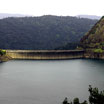
Idukki Dam :-It holds the record of being Asia's highest arch dam with a height of 555 feet. It stands between the mountains of 'kuravanmala' and 'kurathimala'. Historical sources say that Shri Kolumban, the...
Read More
Idukki Dam
It holds the record of being Asia's highest arch dam with a height of 555 feet.
It stands between the mountains of 'kuravanmala' and 'kurathimala'. Historical sources
say that Shri Kolumban, the head of 'Araya' race during 1922 showed the way to the
spot of the present arch dam to the Malankara Estate Superintendent and his friend
Thomas who were on a hunting spree in the forest. Commercial operation of the dam
started in 1976
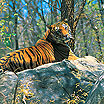
Periyar Tiger Reserve :-The Periyar lake is at the centre of this national
park. The area around it was declared a reserve forest in 1899 and then, as Nelikkampetty
sanctuary
Periyar Tiger Reserve
The Periyar lake is at the centre of this national park. The area around it was
declared a reserve forest in 1899 and then, as Nelikkampetty sanctuary in 1934 and
renamed as Periyar wildlife sanctuary in 1950 and became a national park in 1982.
Elephant, Gaur, Sambar, Barking deer, Lion tailed Macaque et all are other important
mammals.
.png)






